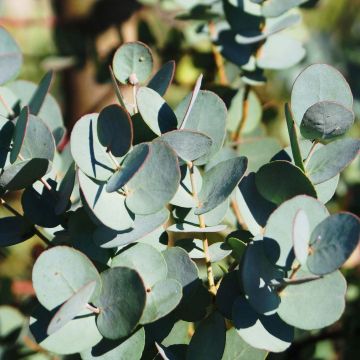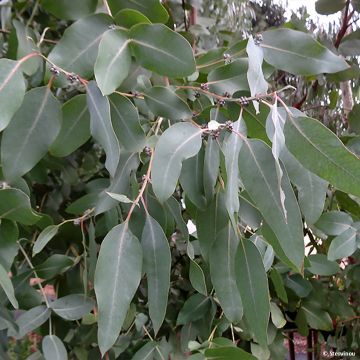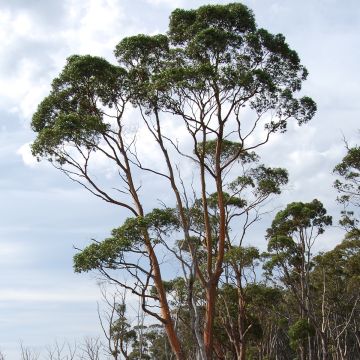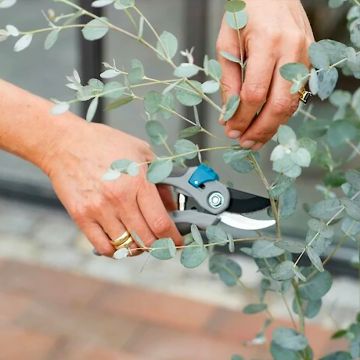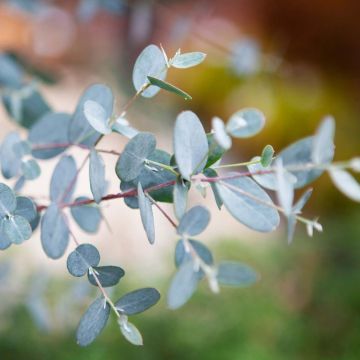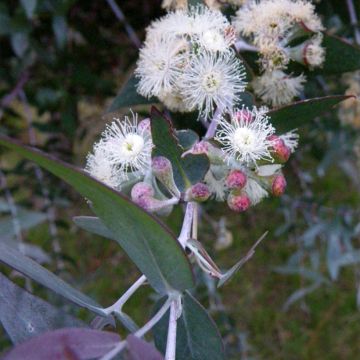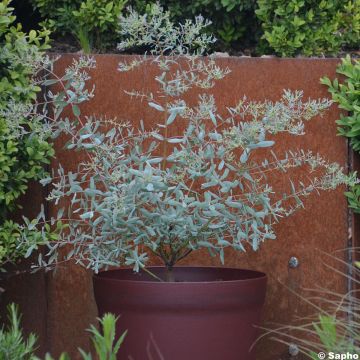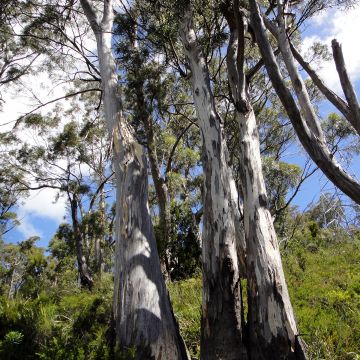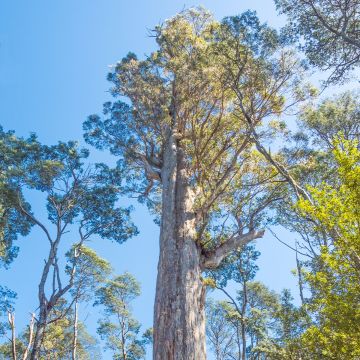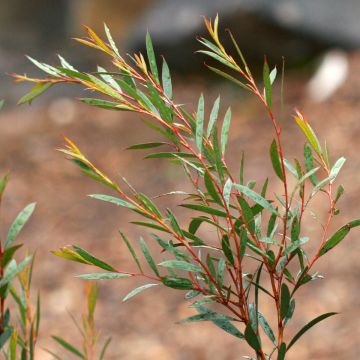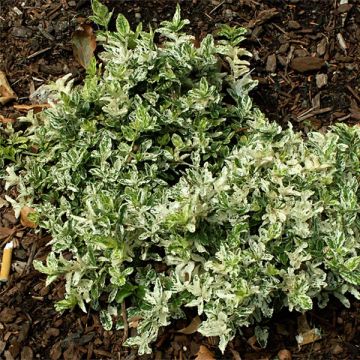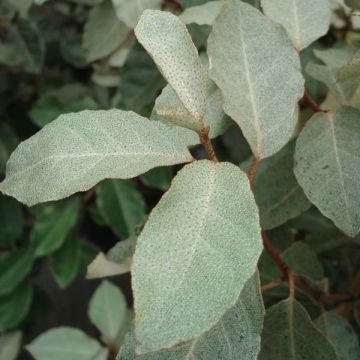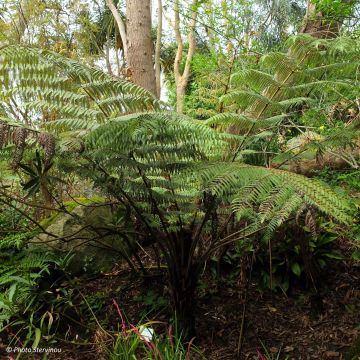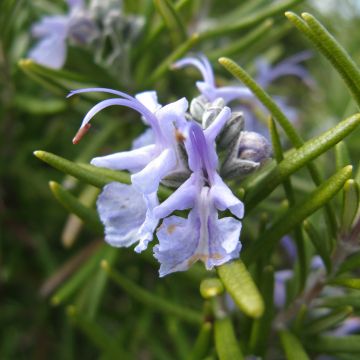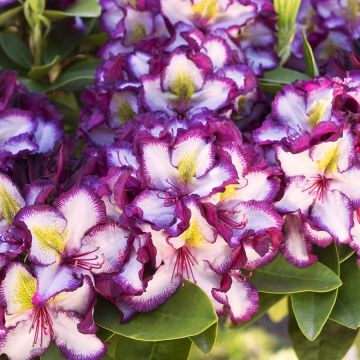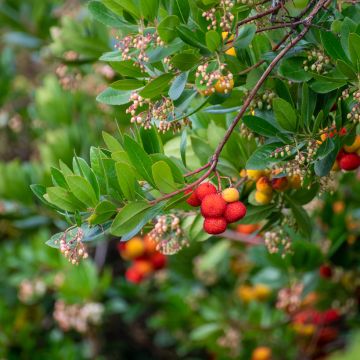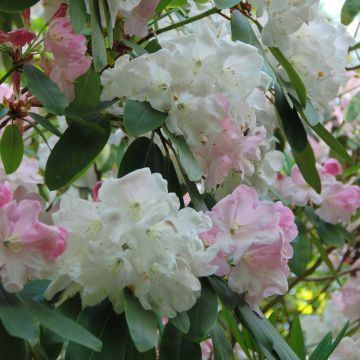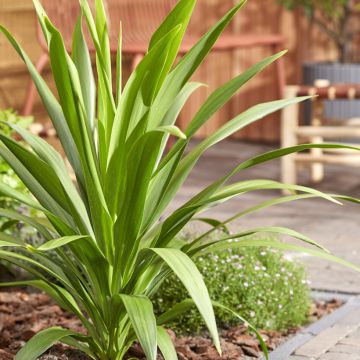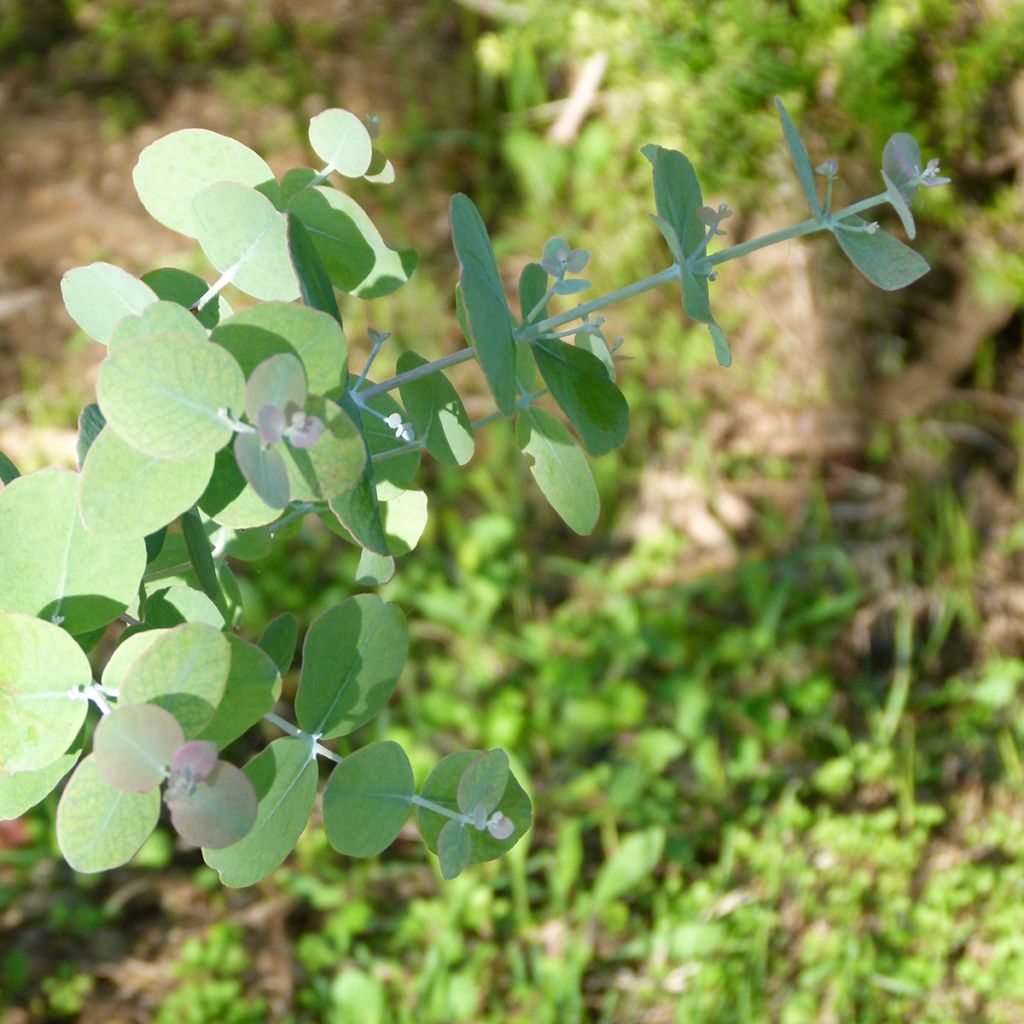

Eucalyptus goniocalyx Dwarf form
Eucalyptus goniocalyx Dwarf form
Eucalyptus goniocalyx Dwarf form
Bundy
Special offer!
Receive a €20 voucher for any order over €90 (excluding delivery costs, credit notes, and plastic-free options)!
1- Add your favorite plants to your cart.
2- Once you have reached €90, confirm your order (you can even choose the delivery date!).
3- As soon as your order is shipped, you will receive an email containing your voucher code, valid for 3 months (90 days).
Your voucher is unique and can only be used once, for any order with a minimum value of €20, excluding delivery costs.
Can be combined with other current offers, non-divisible and non-refundable.
Home or relay delivery (depending on size and destination)
Schedule delivery date,
and select date in basket
This plant carries a 24 months recovery warranty
More information
We guarantee the quality of our plants for a full growing cycle, and will replace at our expense any plant that fails to recover under normal climatic and planting conditions.
Would this plant suit my garden?
Set up your Plantfit profile →
Description
Eucalyptus goniocalyx 'Dwarf form' is a small tree appreciated for its balanced stature, on one or more trunks, which will highlight a rough bark surprisingly decorative in adulthood, similar to that of an old olive tree. With a relatively slow growth for a eucalyptus, it forms a tree reaching 5 to 7 m (16 ft 5 in to 23 ft) in height, with dense and branched vegetation. Its long evergreen leaves of a beautiful bluish-green are particularly aromatic. Quite hardy (down to -8/-10°C (17.6/14 °F)), this eucalyptus, endemic to the coastal and arid regions of the extreme southeast of Australia, requires a very sunny location. It adapts to any type of soil, even poor, as long as it is well-draining, neutral or acidic pH, or even slightly alkaline (limestone). Tolerant to dry conditions once established, it will need watering to settle. Tolerating pruning well, this eucalyptus is able to adapt its root system to its vegetation, which allows it to contain its height to the space it is given.
Eucalyptus goniocalyx is an endemic species of southeastern Australia, where it is present, in the form of a tree, on the high plateaus and hills, ranging from northern New South Wales to central-west Victoria; and also in the form of mallee (multiple trunks from the stump) in the driest areas of South Australia in the Mt Lofty and Flinders mountain ranges. In these mountainous regions, it thrives on poor and well-draining soils, under a coastal climate with a mild atmosphere in winter (5 to 15°C (41 to 59 °F)) and warm in summer (15 to 25°C (59 to 77 °F)), with precipitation of 1000 mm spread over all months of the year. It belongs to the Myrtaceae family. The species name: goniocalyx, comes from the Greek gonio which means angled and calyx, in reference to the angles on the fruit. The leaves, rich in cineole are distilled to produce eucalyptus oil, which is used in the composition of medicines, antiseptics, repellents, flavours or perfumes.
The variety 'Dwarf form' is a compact form of the species, with a bushy habit, which can reach up to 6 metres (19 feet 8 inches) in height and 4 metres (13 feet 1 inches) in width. Its frame is made up of several stems from a lignotuber* located just below the surface of the soil. When young, it has glaucous green branches, rounded or square, bearing juvenile foliage, composed of round, opposite leaves, without petioles, 3.5 to 10 cm (1.4 to 3.9 in) long by 3.5 to 11 cm (1.4 to 4.3 in) wide and bluish green. Then, as it develops, the petiolate leaves are alternate and take a lanceolate to crescent shape, 8 to 25 cm (3.1 to 9.8 in) long by 1.5 to 4 cm (0.6 to 1.6 in) wide, a nice shiny bluish-green on both sides. The leaves are very aromatic and give off a menthol scent when crushed, rich in eucalyptol. As it ages, the bark, on the trunk and part of the branches, becomes greyish, rough and fibrous. The flowering occurs mainly in summer, but occasionally, at other times. The inflorescence, arranged at the axil of the leaves, on a short peduncle, is composed of 7 floral buds gathered in a tight bouquet, blossoming into a flower with numerous cream-white anthers, forming a pompom 1 to 2 cm (0.4 to 0.8 in) in diameter. Rich in nectar, they are very attractive to bees. After flowering, the fruits, called "gumnut", appear as a woody, hemispherical capsule which contains 1.5 to 2.5 mm (0.1 to 0.1 in) long, brown, grey or black seeds. These capsules are not edible for humans, but provide a source of food for local wildlife, especially birds and insects.
This eucalyptus has a *lignotuber, made up of a swelling rich in starch that forms on the roots just below the surface of the soil. This organ allows it to regrow from the stump in case of severe frost, fire or ground-level pruning. The plant also produces many shoots from dormant buds located under its bark, which allows it to respond perfectly well to coppicing, topping or more severe pruning.
Eucalyptus goniocalyx 'Dwarf form' is ideal for medium to large gardens, where it can be used as an ornamental plant to add height and structure to the landscape. It is often planted in groups or hedges to create a natural barrier or privacy screen. This plant is drought-resistant in summer, in well-drained soil, even slightly limestone. It tolerates hot, dry summers, wind and sea sprays well. It is an ideal plant in a Mediterranean-type garden in association with Strawberry Trees (Arbutus unedo), Callistemon (Bottlebrush), Pomegranates (Punica granatum), Olives (Olea europaea), Mimosas, Pistacia lentiscus …
Report an error about the product description
Eucalyptus goniocalyx Dwarf form in pictures
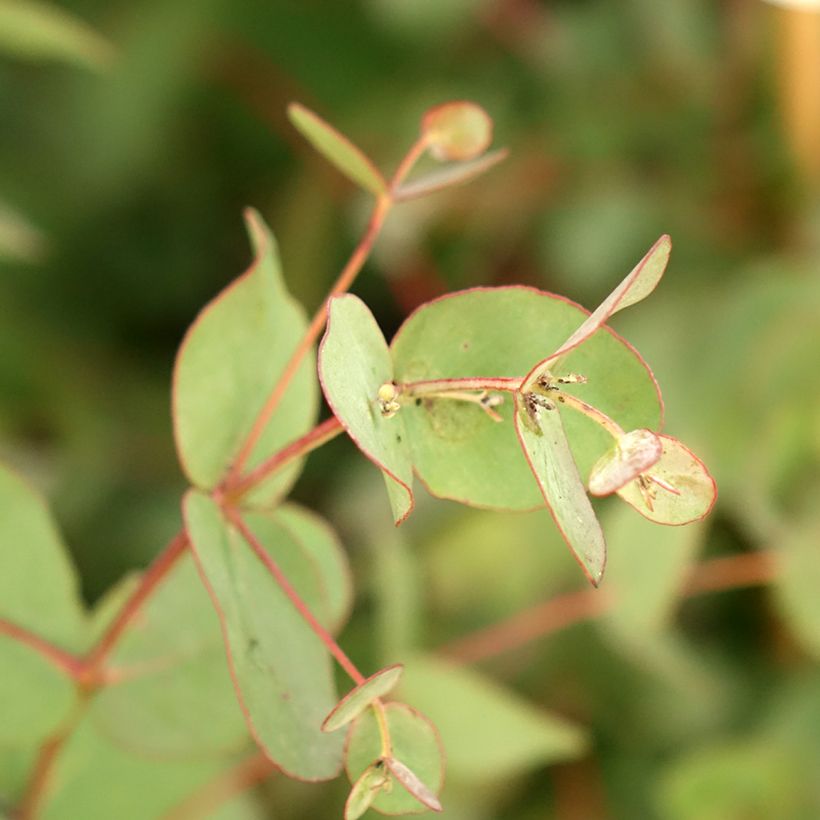

Plant habit
Flowering
Foliage
Botanical data
Eucalyptus
goniocalyx
Dwarf form
Myrtaceae
Bundy
Australia
Other Eucalyptus
View all →Planting and care
Eucalyptus goniocalyx Dwarf form is best planted at the beginning of spring in a mild and humid climate, at the beginning of autumn in a dry and hot climate. Plant in well-prepared, light and drained soil, in a very sunny situation. Sandy, loamy, slightly clayey, acidic or even chalky soils are well tolerated. A well-established specimen resists summer drought and it will be hardy down to - 8 °C (46.4 °F). This species from the far south-east of South Australia does better in climates with dry summers. Pot cultivation is not recommended in the long term, as this eucalyptus has a stump that widens a lot by the production of shoots.
For the first two years, regular watering is necessary, then the bush can do completely without watering in summer. Fertiliser is not recommended. Pruning is not necessary, but it is well tolerated after flowering, or at the end of winter if the stems have frozen. You can train the eucalyptus into multiple trunks or on a single trunk, by selecting the one that is best placed and cutting all the others flush. It is quite possible to cut back this small tree to form a large bush whose height you can limit.
Eucalyptus are useful for drying out wet lands, as they are big consumers of water even in winter. However, they become quite resistant to drought once well established (depending on the species and varieties) and they do rather well in Mediterranean-type climate.
Young plants establish most easily in the open ground. The extensive and deep root system of the Eucalyptus does not like to be disturbed and it tends to form a "bun" if the young plant stays too long in its pot. Choose its location carefully, which will be final.
Planting period
Intended location
Care
This item has not been reviewed yet - be the first to leave a review about it.
Similar products
Haven't found what you were looking for?
Hardiness is the lowest winter temperature a plant can endure without suffering serious damage or even dying. However, hardiness is affected by location (a sheltered area, such as a patio), protection (winter cover) and soil type (hardiness is improved by well-drained soil).

Photo Sharing Terms & Conditions
In order to encourage gardeners to interact and share their experiences, Promesse de fleurs offers various media enabling content to be uploaded onto its Site - in particular via the ‘Photo sharing’ module.
The User agrees to refrain from:
- Posting any content that is illegal, prejudicial, insulting, racist, inciteful to hatred, revisionist, contrary to public decency, that infringes on privacy or on the privacy rights of third parties, in particular the publicity rights of persons and goods, intellectual property rights, or the right to privacy.
- Submitting content on behalf of a third party;
- Impersonate the identity of a third party and/or publish any personal information about a third party;
In general, the User undertakes to refrain from any unethical behaviour.
All Content (in particular text, comments, files, images, photos, videos, creative works, etc.), which may be subject to property or intellectual property rights, image or other private rights, shall remain the property of the User, subject to the limited rights granted by the terms of the licence granted by Promesse de fleurs as stated below. Users are at liberty to publish or not to publish such Content on the Site, notably via the ‘Photo Sharing’ facility, and accept that this Content shall be made public and freely accessible, notably on the Internet.
Users further acknowledge, undertake to have ,and guarantee that they hold all necessary rights and permissions to publish such material on the Site, in particular with regard to the legislation in force pertaining to any privacy, property, intellectual property, image, or contractual rights, or rights of any other nature. By publishing such Content on the Site, Users acknowledge accepting full liability as publishers of the Content within the meaning of the law, and grant Promesse de fleurs, free of charge, an inclusive, worldwide licence for the said Content for the entire duration of its publication, including all reproduction, representation, up/downloading, displaying, performing, transmission, and storage rights.
Users also grant permission for their name to be linked to the Content and accept that this link may not always be made available.
By engaging in posting material, Users consent to their Content becoming automatically accessible on the Internet, in particular on other sites and/or blogs and/or web pages of the Promesse de fleurs site, including in particular social pages and the Promesse de fleurs catalogue.
Users may secure the removal of entrusted content free of charge by issuing a simple request via our contact form.
The flowering period indicated on our website applies to countries and regions located in USDA zone 8 (France, the United Kingdom, Ireland, the Netherlands, etc.)
It will vary according to where you live:
- In zones 9 to 10 (Italy, Spain, Greece, etc.), flowering will occur about 2 to 4 weeks earlier.
- In zones 6 to 7 (Germany, Poland, Slovenia, and lower mountainous regions), flowering will be delayed by 2 to 3 weeks.
- In zone 5 (Central Europe, Scandinavia), blooming will be delayed by 3 to 5 weeks.
In temperate climates, pruning of spring-flowering shrubs (forsythia, spireas, etc.) should be done just after flowering.
Pruning of summer-flowering shrubs (Indian Lilac, Perovskia, etc.) can be done in winter or spring.
In cold regions as well as with frost-sensitive plants, avoid pruning too early when severe frosts may still occur.
The planting period indicated on our website applies to countries and regions located in USDA zone 8 (France, United Kingdom, Ireland, Netherlands).
It will vary according to where you live:
- In Mediterranean zones (Marseille, Madrid, Milan, etc.), autumn and winter are the best planting periods.
- In continental zones (Strasbourg, Munich, Vienna, etc.), delay planting by 2 to 3 weeks in spring and bring it forward by 2 to 4 weeks in autumn.
- In mountainous regions (the Alps, Pyrenees, Carpathians, etc.), it is best to plant in late spring (May-June) or late summer (August-September).
The harvesting period indicated on our website applies to countries and regions in USDA zone 8 (France, England, Ireland, the Netherlands).
In colder areas (Scandinavia, Poland, Austria...) fruit and vegetable harvests are likely to be delayed by 3-4 weeks.
In warmer areas (Italy, Spain, Greece, etc.), harvesting will probably take place earlier, depending on weather conditions.
The sowing periods indicated on our website apply to countries and regions within USDA Zone 8 (France, UK, Ireland, Netherlands).
In colder areas (Scandinavia, Poland, Austria...), delay any outdoor sowing by 3-4 weeks, or sow under glass.
In warmer climes (Italy, Spain, Greece, etc.), bring outdoor sowing forward by a few weeks.






























